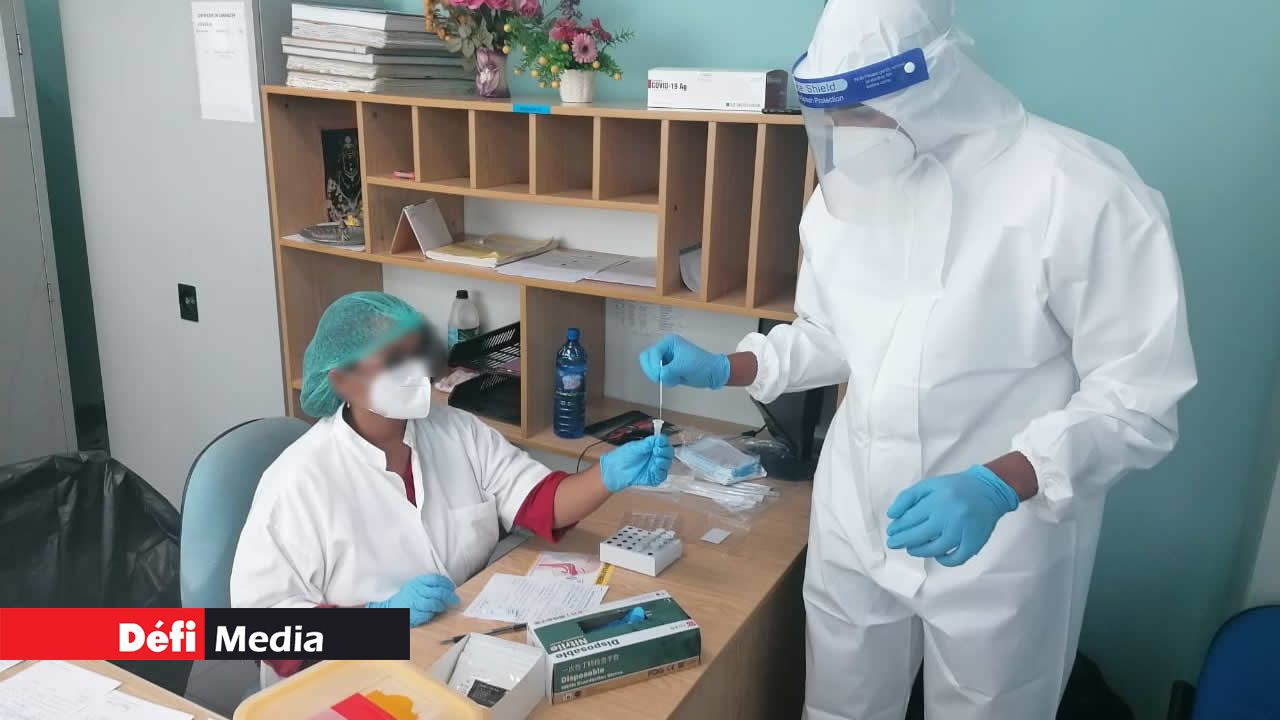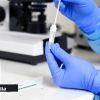
August 2020
Publicité
This policy brief was prepared by a Working Group of 11 scientists from MAST (Mauritius Academy of Science and Technology), under the leadership of Dr D. Caussy, aimed at providing evidence-based arguments relating to COVID-19.
CoVID-19 is a viral disease caused by a hitherto unknown coronavirus called SARS-CoV-2 that was first isolated in Wuhan China in January 2020. In the intervening 6 months, the disease has circumvented the globe, resulting in some 22 million cases and some 782,000 deaths, bringing travel and trade to standstill and plummeting the stock-market. In Mauritius, the first case of SARS-CoV-2 virus was detected on March 8 and the authorities instituted drastic public health measures resulting in only 344 registered cases, 10 mortalities including 2 frontline workers and a cure rate of 98%. The last indigenous case was recorded on the 26 April 2020 and since then the island has remained free from community-level transmission of SARS-CoV-2, despite the importation of 12 cases among repatriated residents. However, with the re-opening of the borders, the situation has to be carefully monitored and a resilient policy has to be adopted.
A number of information pertaining to the virus has emerged since the outbreak began and this include the role of asymptomatic subjects in spreading the virus; the air-borne transmission mode, the survival of the virus on various surfaces, and the public health importance of social distancing and wearing masks combined with testing and isolation in interrupting the chain of transmission. On the other hand, there still exists many information gaps with regards to seasonality and role of antibodies in conferring long terms protection.
Risk management for COVID-19 is wrought with many pitfalls and policy makers have to strike the right balance between being precautious on one hand and not unduly raising fears on the other hand.
Academies serve as beacons for providing sound scientific assessment and best available contemporary evidence based as recommendations to national authorities in the formulation of national policy. The purpose of the present MAST statement is to clarify priorities for actions to prepare for, control and mitigate the health consequences of COVID-19 and to contribute in providing the impetus for change. The main messages are:
1. Health Sector Response
1.1. Adopting a Health in All (HiAP) policy for management of COVID-19
A sector-wide approach must be adopted during policy formulation for management of COVID-19: health is inextricably linked to economic development; a healthy population is an economically productive population a wealthy population is a healthy population. Economic development is in turn intertwined with other sectors particularly educational and agriculture therefore one has to adopt a health in all policy when dealing with COVID-19. We have to protect our borders from risks of emergence during travel, while concomitantly protecting our economies and livelihood, without jeopardising our schools and other educational institutions.
1.2. Conducting an independent review of progress so far
In preparation for reopening of our territories, we must anticipate and protect the country for further waves of COVID-19 or future pandemics. We need to review lessons learnt from other countries which have reopened too soon, by conducting a comprehensive, independent and impartial evaluation of the COVID-19 management focussing on identifying weaknesses and strengths, and lessons learnt. This evaluation can be undertaken by a panel of international and national experts including MAST, focusing on three areas: governance and decision making, scientific and technical advice, and operational capacity.
1.3. Formulating a fully fledge pandemic preparedness plan
The global situation is fast evolving and Mauritius has to constantly undertake its risk assessment to enable confinement and mitigation actions to be activated when necessary. The blueprints for these can be embodied by formulating a comprehensive pandemic preparedness plan that resonates the different phases of the pandemic with well-defined goals, targets and deliverable, resonating with different phases of the pandemic.
1.4. Opening the border must be carefully plan
Opening the borders has a myriad of implications as travellers will often come from multi-segment journeys with varying risk profiles. The use of continually updated ‘safe travel corridors’ combined with entry and exit testing have to be taken into account. Therefore, the pandemic preparedness plan must not only have defined components for opening our borders, but it must also include contingency provision for totally or partially closing the border if the epidemiologic situation deteriorates to re-emergence of more aggressive second wave. This can be ensured by strengthening the health system for controlling points of entry, screening, laboratory testing, surveillance, risk communication, training of health care workers and containment of imported cases by isolation, combined with active case search and contact tracing and appropriate treatment.
1.5. Innovating and promoting digital technology for surveillance
It is well established that surveillance through early case-detection and contact tracing limit the spread of the pandemic. We have to adopt a paradigm shift from classical contact tracing to the use of digital technology. Surveillance can be enhanced by using digital technologies on smart phones to locate sources of infection or re-emergence in large crowd gathering, social events and places of work like educational institutions, hotels and factories and thus eliminate the foci of infection.
1.6. Sustaining and promoting proven public health measures
There is wide of evidence to support the role of public health measures such as wearing mask, practising social distancing and ensuring environmental disinfection in attenuating the spread of the virus. These measures should be continually used until the global situation has improved or a universal vaccine has been found.
2. Education sector response
2.1. In order to ensure no education disruption, a paradigm shift in learning (e-learning and distance learning) with a right mix of active teaching and learning approaches, including new distance-learning pedagogies and appropriate assessment policies are required.
2.2. The existing education infrastructure must be reviewed. Strategic planning and mobilisation of resources to ensure timely capacity-building for teaching/non-teaching staff, provision of appropriate education and support structures/mechanism for assessment
3. Agriculture sector
3.1 The pandemic has highlighted our dependency on food imports and the necessity to boost local agricultural production, aiming at import substitution.
3.2 A national awareness is necessary to promote and plan the cultivation of fruits and vegetables. Enabling policies to bring more land under cultivation, encouraging agro-processing and access to markets are necessary.
4. Creating and enhancing partnerships
4.1. In order to achieve coordinated action to deal with the pandemic of COVID-19, Mauritius must develop and forge partnership at all levels, ranging from local, national, to international ones across relevant disciplines and sectors.
5. Conducting Research to generate evidence for action in Mauritius
5.1. The COVID-19 is a novel virus and scanty information is available on its epidemiology, health impacts and treatment in the Mauritian context. We need information on the frequency of asymptomatic carriers, their duration of infectiousness and their roles in spreading the virus.We also need to know what local factors determine the severity of the disease and types of drugs will work in reducing the complications resulting from infection.
5.2. Research in these areas should generate evidence to inform policymaking and provide new tools to control disease and to support program implementation
6. The Social Impacts of COVID-19 Mauritius
6.1. COVID-19 outbreak affects disproportionately affect the vulnerable population, including people living in poverty situations, older persons, persons with disabilities and the youth. Comprehensive, universal social protection systems must be in place to protect workers and in reducing the prevalence of poverty
6.2. Understanding the ‘next normal’ consumers after Covid 19 outbreak.
6.3. The period of contagion, self-isolation, and economic uncertainty has changed the way consumers behave and these rapid shifts have important implications for any consumer-facing company.
6.4. Companies have an opportunity to help shape the next normal. Companies must rethink how and where they connect with consumers. Overall consumption is shrinking, the shopping basket is undergoing a significant change in mix, and consumers are changing the ways they get their information.
6.5. Public health and uncertainty about the length of the pandemic has become the primary consumer concerns during the lockdown and self-care has climbed up the priority list for most consumers. Companies will need to adapt to fundamentally different consumer preferences and behaviours
6.6. Consumers are staying home in droves and tourism has been almost entirely grounded, with airline travel declining 90 percent overall. Domestic travel must be promoted as consumers start summer vacations.
6.7. Gen Z, for example, which had a high degree of digital adoption pre-COVID-19 are much more likely to be economically impacted by the crisis due to their disproportionate exposure to self-employment.
-----------------------------------------------------------
Dr M. Atchia (President), Pr R. Ramma (Secretary) of MAST, 20th August 2020.

Notre service WhatsApp. Vous êtes témoins d`un événement d`actualité ou d`une scène insolite? Envoyez-nous vos photos ou vidéos sur le 5 259 82 00 !

















![[Blog] Maurice à la Croisée des Cieux - Vers une Politique Open Sky pour relancer le Tourisme, l’Aviation et l’Économie»](https://defimedia.info/sites/default/files/styles/square_thumbnail/public/170425_tourist.jpg?itok=Rc-UGYCU)



